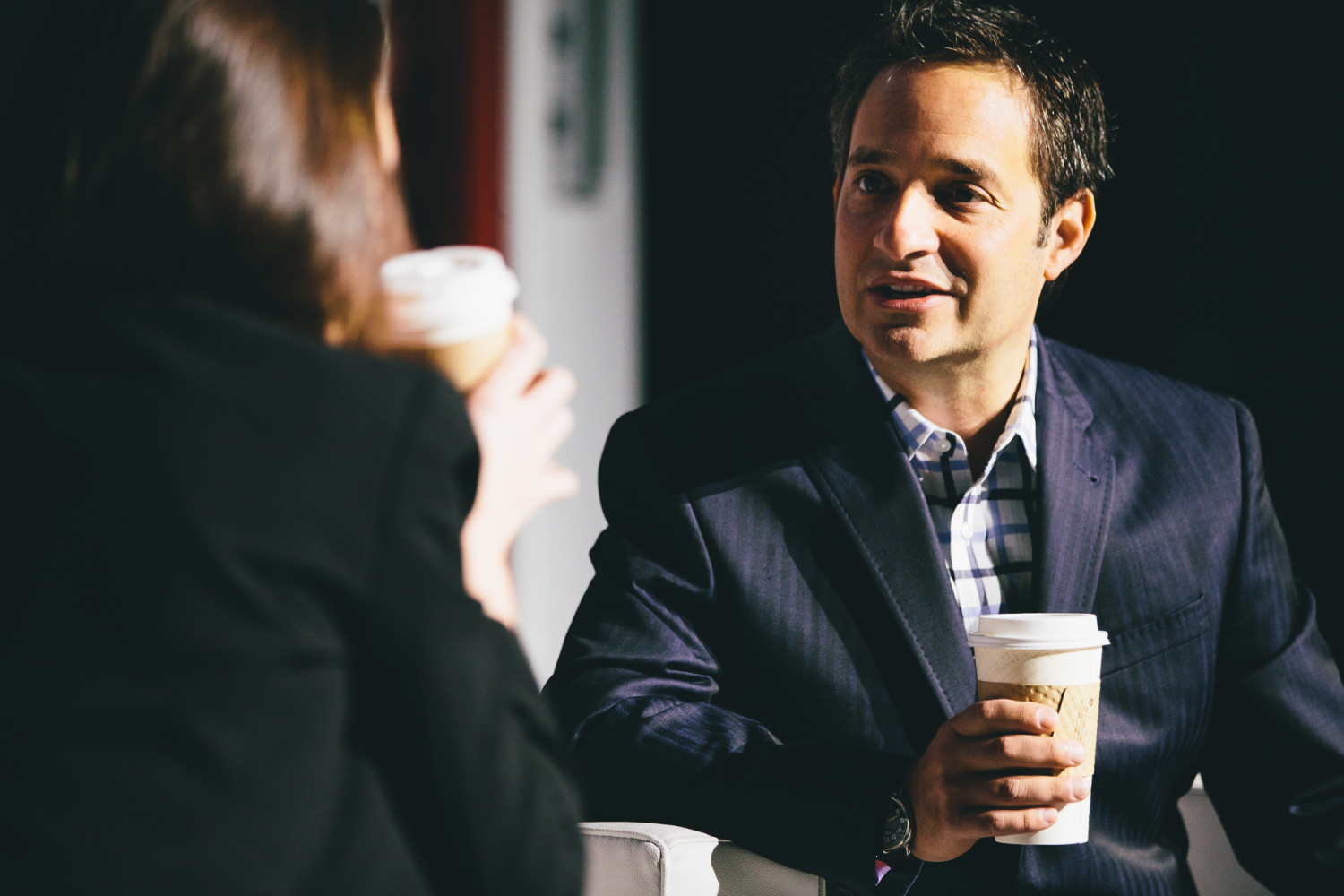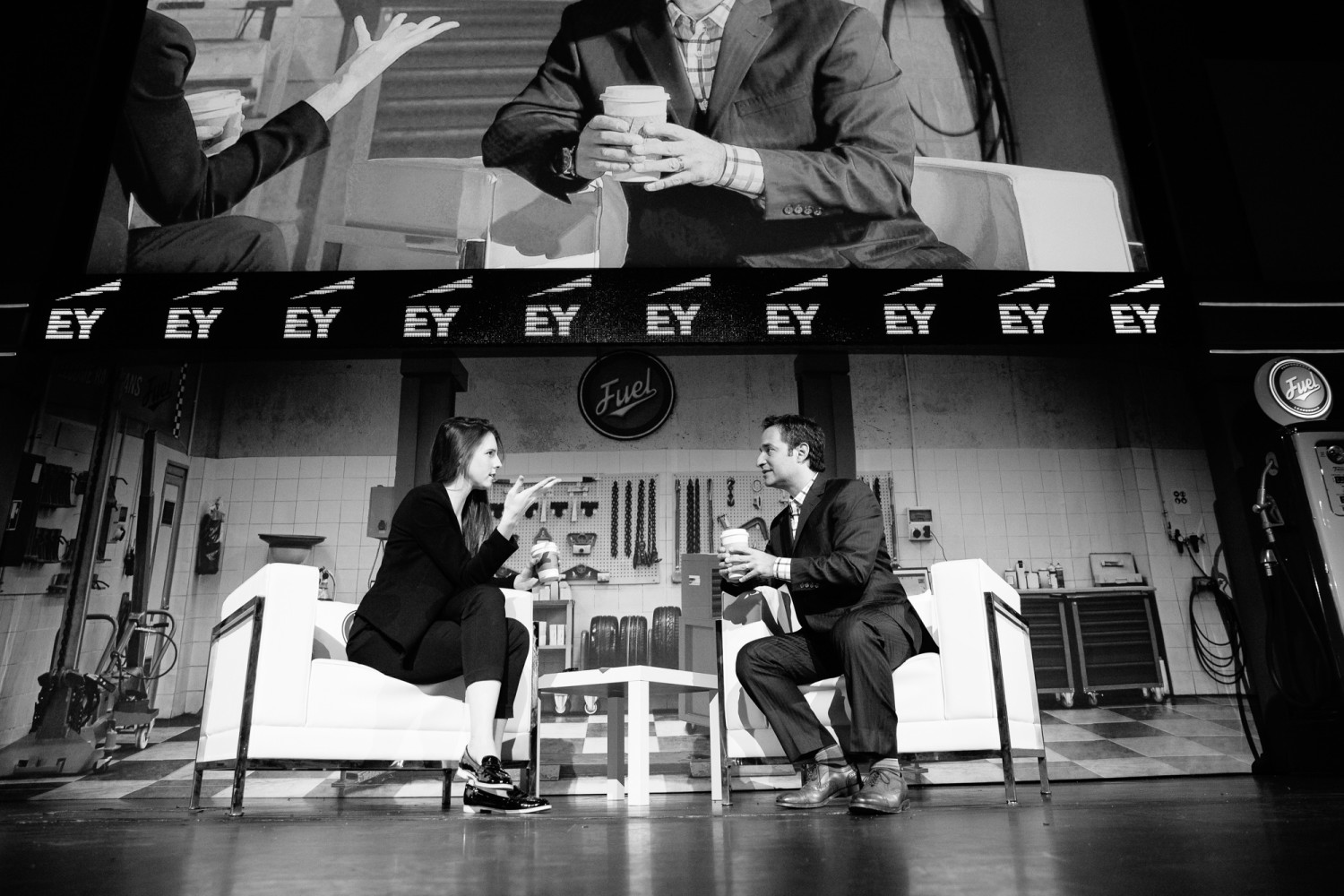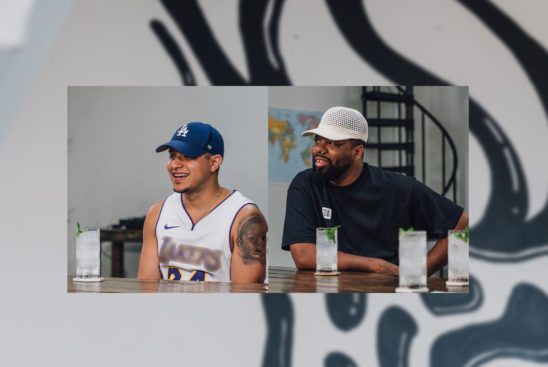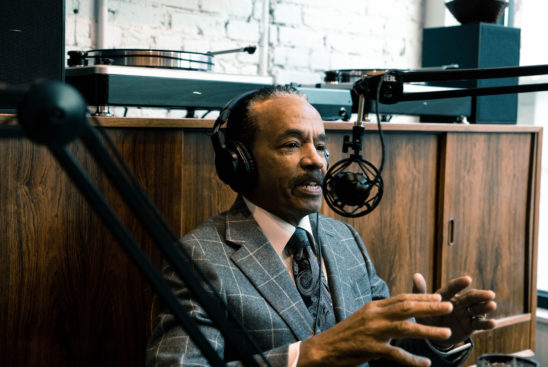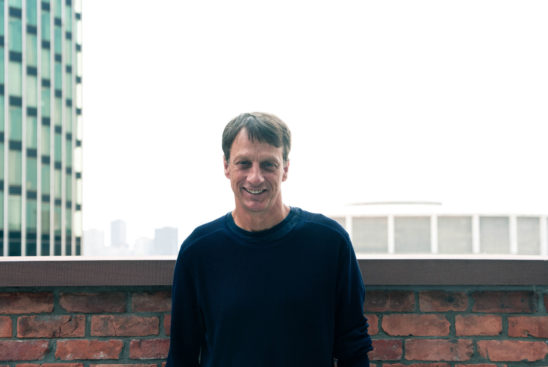On a big day like today– year two of the leadership conference, Fuel Detroit, that you co-founded– with speakers including Martha Stewart and Michael Strahan flying in, what was your morning like?
Well [laughs], I have a little teeny dog that is like three pounds. I’ve never been a dog person, but my wife and I got this dog and I’m just obsessed with him. His name is Da Vinci. You know how people have a lap dog? We have a hand dog, he’s so little. This little guy snuggles up with us at night, but he kept waking up, so I spent a couple hours up in the middle of the night with Da Vinci. It’s funny, you look at a big event like this and you think there is all of this ceremony behind it but we’re all just human beings hanging out with our families and our dogs [before we get on site.]
Is coffee part of your morning ritual?
I’m a caffeine junkie. To me it’s one of the four major food groups. It terms of “A Drink With,” wine is one of the other major food groups so [between the two of us] we’ve got two of the four covered.
If it weren’t 7:30 a.m. would we be drinking wine?
Yes. A great glass of red wine.
x
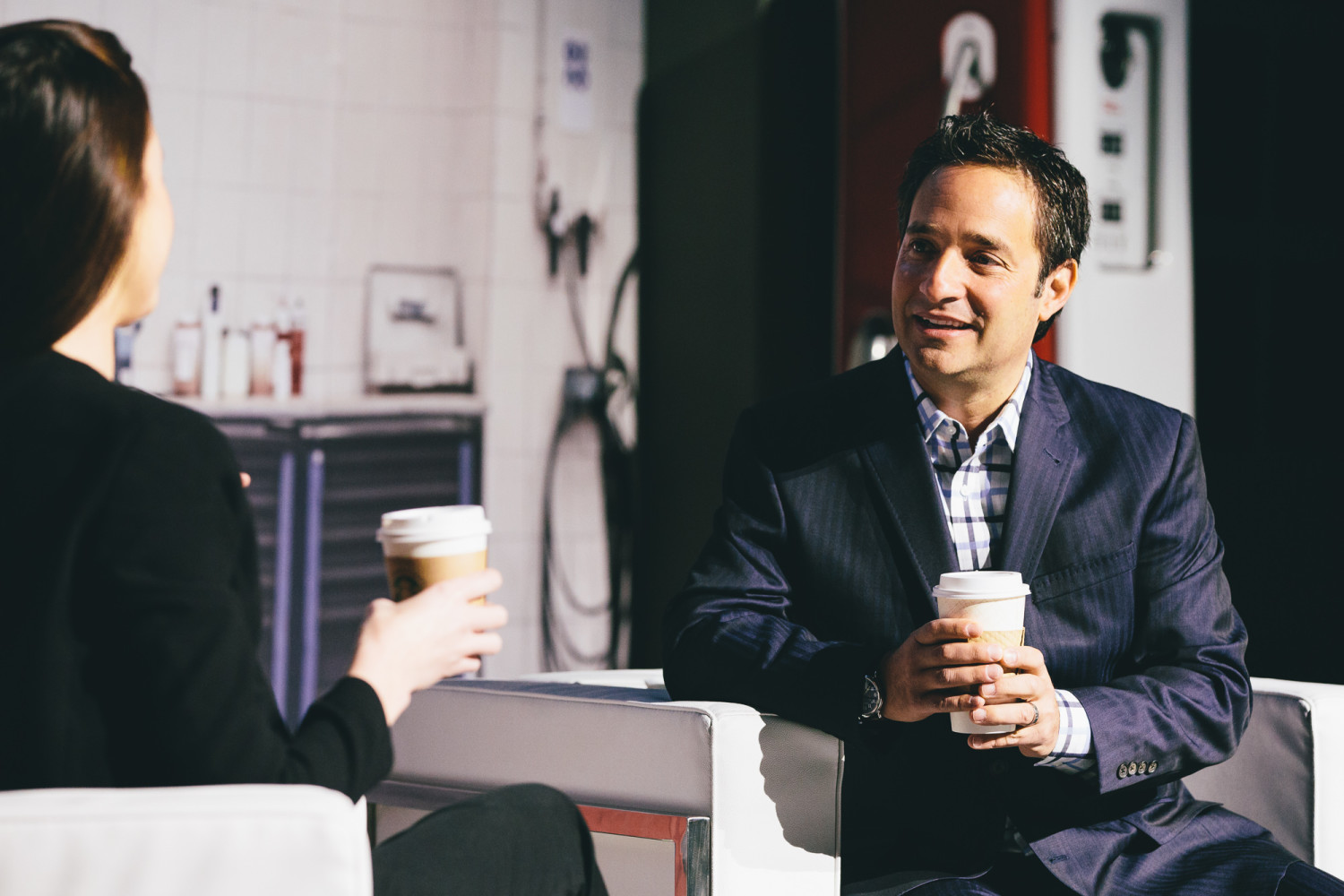
As the author of two New York Times best-sellers: “Disciplined Dreaming: A Proven System to Drive Breakthrough Creativity” and “The Road to Reinvention: How to Drive Disruption and Accelerate Transformation,” how do you get your creative juices flowing?
I’ve done a lot of research on creativity and it’s hard to just switch it on. So you’re right about the word ritual. There are a few different things you can do. One thing that I like to do… I’m really into music. I actually started my career as a jazz guitarist so for me even a few minutes playing or a few minutes listening to music kind of gets me in the zone. I think that everybody has their own muse. For someone else it could be dance or whatever. The point is that if each of us can connect to that one little spark that gets our juices flowing it can really carry us through going forward.
If you could paint a picture of what Detroit looks like in 5 and 10 years, what are we looking at?
As you know, 100 years ago Detroit was this spectacular Silicon Valley. This is where startups came. Of course, we suffered a lot of turmoil in the last several decades, but I’m more optimistic than ever. We are in the midst of this profound transformation. It’s invigorating. I was walking around downtown yesterday– beautiful day– and I noticed three or four new restaurants and there are all of these people and vibrancy and we’re just getting started. These are still the early innings. So I think in five years you’re going to see instantly the vast majority of structures are going to be filled. You’re going to see a lot of the vacancies go away, a lot of vibrancy, a lot more people living, working and playing in downtown Detroit. By 10 years I think we rival just about any major city. My goal isn’t for us to be the Silicon Valley of the Midwest or the Paris of whatever; I want to be the Detroit of Detroit. We have so much authenticity here and so much soul, heritage and roots. It’s more about building around what we are rather than apologizing for what we’re not.
Are you willing to say on the record that the people in Detroit hustle harder than any other city?
There’s no question about it. That’s what we need. We have to double down on what we’re good at. We have that grit, scrappiness, determination, resiliency and I think those are going to be the building blocks that will continue to drive the momentum.
x
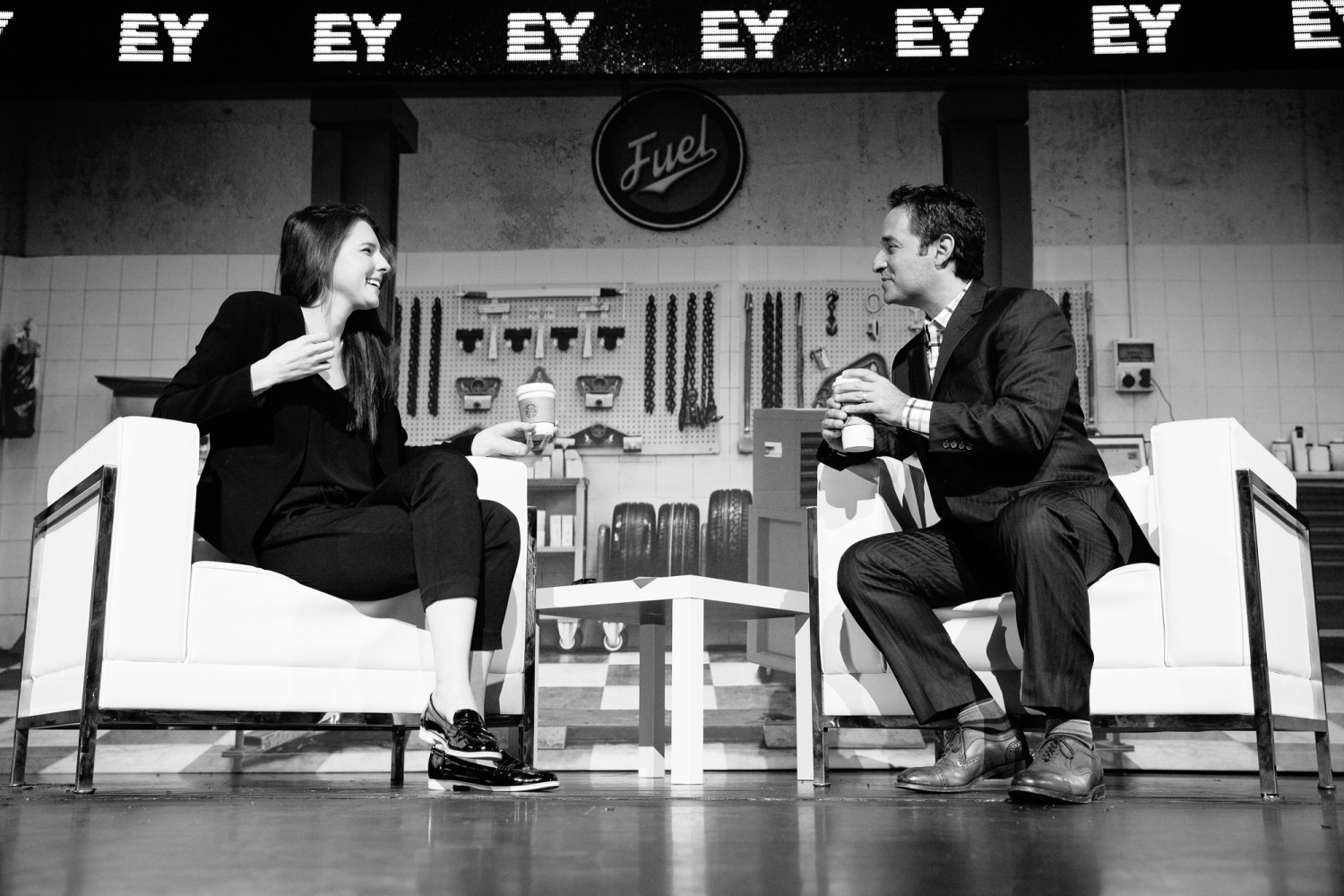
How were you scrappy within the last month?
I think a lot of the preparation for Fuel Detroit has been rather scrappy. I mean we’re doing something that’s never been done before. We decided to take the idea of a boring business conference, fuse it with a rock concert and instead of having academics and slide charts that make you go to sleep we’re having celebrity entrepreneurs and people at the top of their industry, the most successful leaders of the world. We convinced them to fly into Detroit and sold out the house. We’re taking that same scrappiness and applying it to this new venture, which is trying to transform the way we learn and grow professionally.
Who do I need to have a drink with in Detroit?
In the past you’d point to the obvious ones like Dan Gilbert, Roger Penske or Chris Ilitch, but there are so many stories here. There are amazing entrepreneurs, there are people starting food businesses, people doing alternative energy deals, entrepreneurs starting craft breweries and such. Really, you could go on and on. Obviously the Shinola folks are a wonderful group and have helped promote Detroit commerce.
x
How would you explain what is happening in Detroit over coffee to someone in a different city?
The first thing I would say is this; we had a number of factors that brought us down. It was the perfect storm between racial divisiveness, lack of innovation, complacency, entitlement, you name it, but today we’re having the perfect sunny day. We’ve got private sector investment in a big sense, we’ve got government support, we have legitimate leaders in the city, the corruption has been broomed out, we’ve got this incredible momentum with all of these people coming together to make Detroit great.
What is your elevator pitch to get someone to bring their business to Detroit?
If you’re in Chicago, Chicago is already a fabulous city and the chances of you leaving your fingerprints on Chicago and making a significant impact are lower than they would be in Detroit. Same with San Francisco or New York. So here– especially in regards to people who are in the millennial group who not only want to do well financially but also make a difference– you get to do both. In Detroit there is unprecedented opportunity to stand out, to soar, to take advantage of what is happening and to leave your fingerprints on the turnaround of a great American city. And who gets to do that? This is the stuff you tell your grandkids about. Boston is a great city, Miami is a great city but you’re not going to have the opportunity to shape the future of a real city the way you would here in Detroit.
x
You’ve been the founder and CEO of four tech companies, which sold for a combined value of over $200 million, and with Detroit Venture Partners you’ve invested in and mentored over 100 startups. Do you have advice for getting over nerves before pitching to potential investors?
I think the tip there is to work backwards. If you’re pitching for an investment, for example, instead of saying, “Oh my God, this is my make or break moment, I’m going to screw it up and I’m going to regret it,” and all of those things we tell ourselves I think it’s looking forward and starting with the call you get from that investor two weeks from now. Imagine they call and say, “Hey, great news. You got it. We’re in 100 percent. Where do we send the check?” Get yourself in that vibe and work backwards. Think about what the meeting would have looked like had you gotten that phone call. Start from a position of success rather than worrying about a position of failure.
Biggest mistake you can make in a pitch?
Wow, there are a lot of mistakes you can make in a pitch and I’ve seen thousands of them. One thing is making it a monologue rather than a dialogue. Most investors– right or wrong– fancy themselves as being somewhat smart and they want to engage and have a conversation rather than have someone talk in run-on sentences. Another thing is people get so caught up in the solution but don’t focus enough on the problem. I like to hear when people come in and say, “Here’s the big giant gaping frustrating problem in the world that needs to be solved,” and then talk about the solution so there’s a little bit of a tension and a release as opposed to coming in with facts, figures and technology.
x
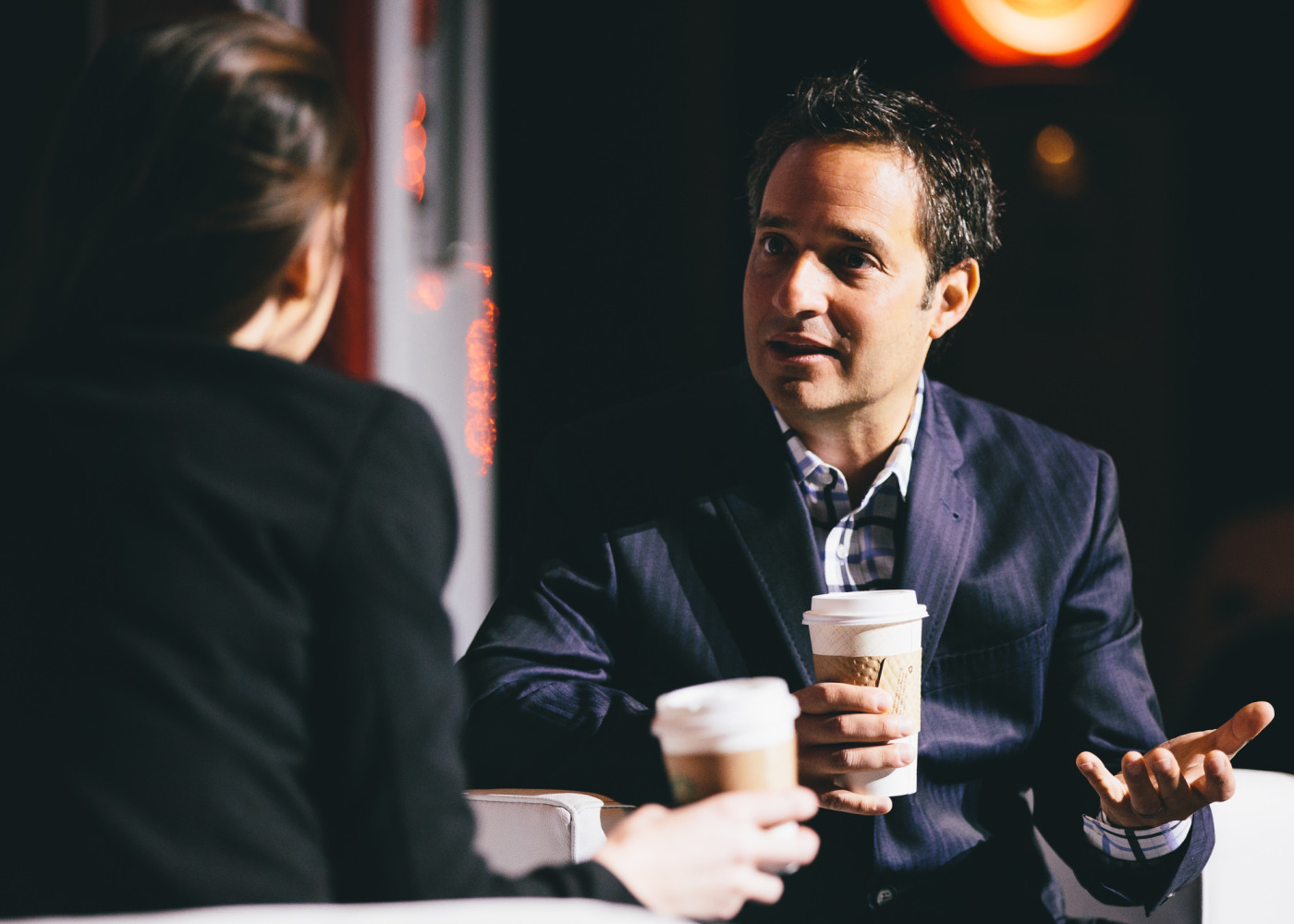
How does becoming intoxicated by your own success lead to failure?
That’s often what happens. When you look at many companies that were once leaders that have gone away, it’s that. They become so committed to protecting what was instead of imagining what can be. They have this myth like, “Oh we’ve cracked the code!” Like success is going to last forever and, “We can keep doing what we’ve been doing.” That works if the world is static, but today we live in a rate of change like none other in history. What that means for companies that are enjoying success is that they need to reinvent early and often from a position of strength rather than waiting for a turnaround and negative situation. That has been the downfall of so many companies. They say, “We are the best at XYZ and we’re just going to keep doing this,” but what happens then is that it opens up the playing field for others to come disrupt them. If I’m leading a big company that’s successful I’d rather be the disruptor than the disruptee.
What makes you nervous today?
You know I’m afraid of a lot of things actually. I’m not Steve Jobs, but you look at a Steve Jobs or someone like that and it’s not that they didn’t have fear, it’s that they didn’t let it hold them back. All human beings are afraid of stuff. In my case, I want to make sure that we are seizing this opportunity. I think there is a real gap in professional development. It’s typically boring, old school and non-energizing. It’s usually from some dusty professor who didn’t do it him or herself. We’re trying to change that model and that’s a big thing to do. We could just follow the old path and take it easy, but we’re trying to completely disrupt it. So I’m nervous about that, but I think that’s what drives people. One of the founders at Intel, Andy Grove, had an old saying, “Only the paranoid survive.” I believe in that. You have to always be on the lookout for new threats and new challenges and ideally get ahead of them.
Has public speaking always come naturally to you?
It did. I felt comfortable doing that, but like anything you need to develop a craft. While tennis probably came natural to [Roger] Federer, he still had to practice. I’ve worked with a coach over the years and the more you do something the better you get at it. I’m still a student and still learning.
x
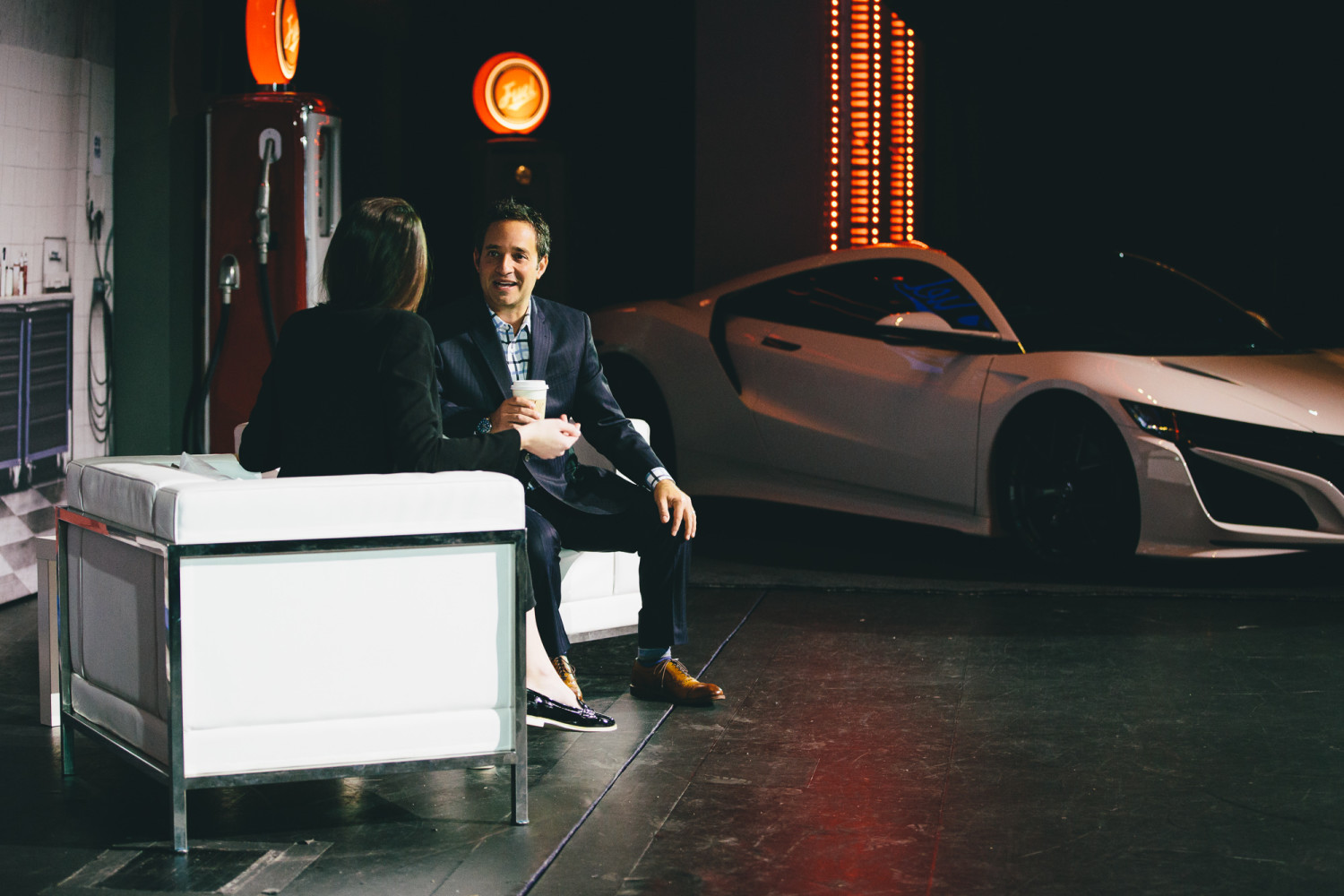
What’s the most helpful tip your public speaking coach gave you?
Don’t fidget. People think you should walk around like a caged animal, but if you want to make a point you’re better off planting and standing still. Standing in your own zone and being confident. That actually conveys more confidence and authority to the audience.
Can you share the best moment that you’ve had over a drink?
I’ve had many special drinks with my wife. Falling in love over a drink or many drinks over the years. She bought me this spectacular bottle of wine when I sold my previous company and we just had a moment. That was a neat moment. Also, as you know, having a drink just builds relationships. It’s a nice way to connect with people on a human level as opposed to sitting across a boardroom table. Many of my closest friends and colleagues, those relationships brew over a cup of coffee or a glass of wine.
If you could have a drink with anyone, who would it be?
I have so many heroes that it would be hard to narrow down. One that comes to mind would be Charlie Parker who was a jazz pioneer. He broke all of the rules and all of the notes that you weren’t allowed to play and he started playing them with vigor. I always liked the people that break the mold. I have a lot of respect for people who are disciplined leaders who oversee and [follow] compliance. There is nothing wrong with that, but I like the mold-breakers, the Charlie Parkers who looked those rules square in the face and balked them.
x
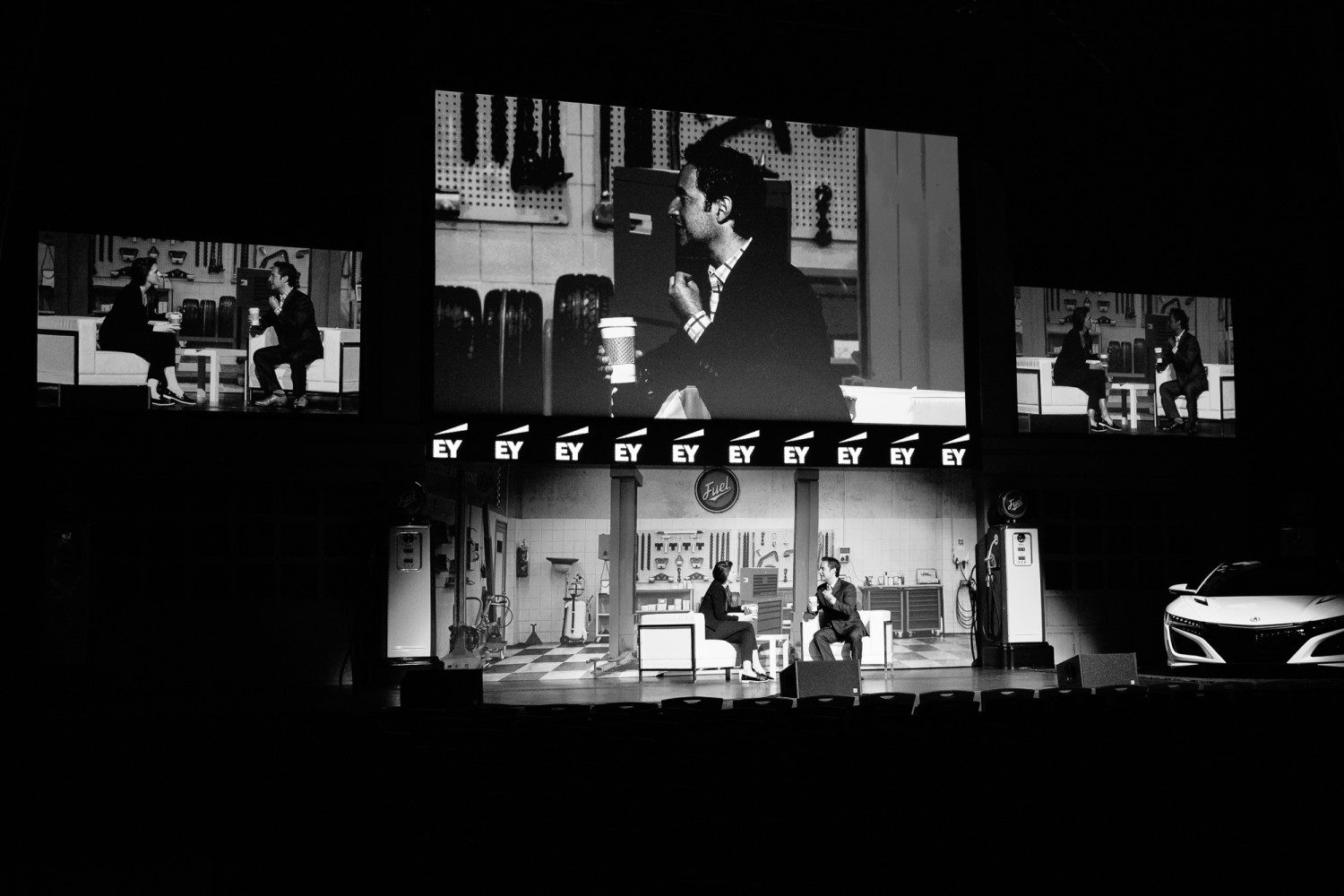 Photography by Aaron Eckels at Sound Board
Photography by Aaron Eckels at Sound Board
Did you enjoy this feature? Subscribe to our newsletter and never miss a drink, we promise we’ll never spam you!

